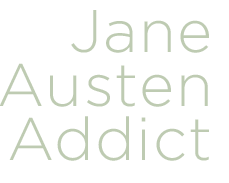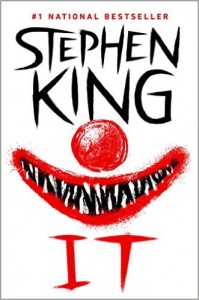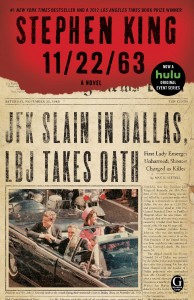
Contribute your story: The Dear Jane Project
Calling all Austen Addicts: Gabrielle of a new blog called the Dear Jane Project wants to publish your personal stories of what Austen means to you and how her works have touched your life. Simply submit your story in the form of a letter to Jane Austen at dearjaneproject@gmail.com, and Gabrielle will post them on the blog.
Here’s what Gabrielle says about her vision for the Dear Jane Project: “Hopefully, this project will allow fans from around the world to share their stories, and create a community…Each one of us has a story, and my goal is for us all to be able to share them. I think it is a great way to commemorate the life of Jane Austen as we approach the 200th anniversary of her death. What would you write to Jane?”
Reading for Writers: The Cormoran Strike Series
I’ve always been a voracious reader. I read for pleasure, relaxation, inspiration, and insights. I’ve also discovered that for those of us who are writers, there’s a bonus feature baked into every great book: a master class on writing.
I enjoy exploring an author’s sensory descriptions, seamless transitions, witty dialogue, deft handling of POV, and judicious sprinklings of humor. I’m fascinated by the sleight of hand that plants foreshadowings and the skillful ways in which the writer made me lose sleep for turning pages late into the night. And, perhaps most important, I am always in awe of the keen eye that shines a light on the manifold facets of human nature.
Jane Austen is one of those authors with an unflinching eye for human nature at its best and its worst. So are Nick Hornby, Zadie Smith, J.K. Rowling, and Aurelia Haslboeck, whose debut novel, The Journeys of John and Julia: Genesis, exemplifies why I return to the works of these authors again and again. I re-read them for pleasure, inspiration, and to marvel at the sheer brilliance of their writing.
Recently, within the space of two weeks, I devoured the first three books in J.K. Rowling’s Cormoran Strike detective series, which she writes under the pen name Robert Galbraith. Here’s a brief clip of Rowling talking about the creation of her series:
Sense and Sensibility: Throwing Shade Edition…& a Giveaway!

In honor of Austen in (mostly) August, one lucky winner will win Emma Thompson’s Sense and Sensibility Screenplay and Diaries plus signed copies of Confessions of a Jane Austen Addict and Rude Awakenings of a Jane Austen Addict. Giveaway ends Sept. 10 at 11:59PM EST. Head over to The Book Rat to enter this giveaway.
Every year, Austen in August has an irresistible array of fun activities and an opportunity to connect with fellow book lovers, some of whom are longtime readers of Austen, some of whom have never read Austen and are curious to try. You can join read-along discussions of this year’s featured work, Sense and Sensibility, decide if Jane Austen’s world was really as attractive as you may have imagined, discuss your favorite film and TV adaptations, rank your most beloved and most hated Austen characters, participate in Twitter parties, enter giveaways, and much more.
And if you’ve ever wished your favorite Austen characters could say something like this:
then check out my guest post, Sense and Sensibility: Throwing Shade Edition.
The Austen in August party has started
Enjoy group reads, movie watching, Twitter parties, discussions, giveaways, and more at this yearly event.
What I’m reading: It by Stephen King
I never did trust clowns. Never did understand how anyone could find them amusing. Or fun. When I see a small child crying at the sight of a clown at a birthday party, I’m like, hey, I feel you. Now, after listening to the mega-long-and-worth-every-second-of-it audiobook for Stephen King’s “It” (over 30 hours!), I feel vindicated. About the clown thing.
I also feel inspired. And awestruck. Because King is truly the master. There is so much depth, insight, compassion, and food for contemplation along with the edge-of-your-seat thrills, that I will be pondering this book for a long time.
I’ve always believed that to write well, one must read. A lot. And reading Stephen King is not only engaging, it comes with a brilliant display of particularity and “show, don’t tell,” and best of of, insightful commentaries on human nature in all its flawed, many-faceted, and endlessly intriguing forms.
“It” deals a lot with childhood. The sheer hellishness of it–bullies, clueless and cruel adults, the phenomenal willpower it takes to withstand parents who are bent on crushing every bit of individuality and light from their children. “It” also sings of the magical power of childhood–the ability to see and sense what adults are blind to, the belief in the existence of magic and all the things, good and evil, that adults simply cannot or refuse to acknowledge. And the life-changing, dragon-slaying power that childhood belief can wield.
Now that I’ve read 11.22.63 and It, I can’t wait to read more. But which one to read next? Thankfully, there is much to choose from; the man is seriously prolific.
I’m thinking maybe Dolores Claiborne, since I saw the movie at least three times and couldn’t stop thinking about it for many reasons, including its echoing of the myth of Persephone, its themes of surviving trauma, and its multi-layered performance by the inimitable Kathy Bates.
What I’m Reading: Year of Yes by Shonda Rhimes
Who would have thought that the powerhouse creator of Grey’s Anatomy, Scandal, How to Get Away With Murder, and The Catch was an introvert? How could someone who “owns Thursdays” become so overcome with fear at the thought of giving a commencement speech at Dartmouth, her alma mater, or being a guest on Jimmy Kimmel Live, that her strongest impulse is to say no?
Except that she doesn’t say no. After years of giving into extreme shyness and its attendant fears of public exposure and ridicule, after years of saying no to everything that would make an introvert shudder, Shonda Rhimes forces herself to say yes. That journey is the essence of her book YEAR OF YES. 
With humor, generosity, and tremendous relatability, the author reveals the extent of her terror and how she blasted through it. I am loving this book, which I’m listening to on audiobook, beautifully narrated by the author herself.
Here’s a clip of Shonda Rhimes on the Stephen Colbert show.
I’m looking forward to listening to the rest of the book. As someone who spent her childhood as an extremely shy person (and still sometimes fights those tendencies), I highly recommend YEAR OF YES to anyone who wants to break the cycle of “no” and step outside of their comfort zone.
Writing at a Standing Desk? Brilliant.
I used to think of ‘writing at a standing desk’ as an oxymoron–can’t be done. And didn’t article after article talk about how despite how good for you standing desks are, writing is best done sitting down? Well, I’m happy to say that I was wrong. I have gone from raising a skeptical eyebrow at the ‘standing desk craze’ to full-on convert.
Why do I LOVE writing at my standing desk?
- It’s energized my writing routine. I feel physically, mentally, and emotionally vibrant as I stand at my desk and write.
- I’ve always thought of writing fiction as something akin to acting, and somehow standing enables me to connect on a more physical level with what the characters are feeling and doing than when I’m sitting slumped in my chair. Yeah, I tend to slump when sitting. Which leads me to the next point.
- My posture is better when I’m standing and writing than when I’m sitting and writing.
- I am more focused when standing than I am when sitting.
- I have more clarity about both big picture and details when I’m standing than when I’m sitting.
- Standing helps me remember to do the ‘power pose’ from that famous TED talk by Amy Cuddy. And that’s always great for my writing.
This is my ReadyDesk standing desk converter, which sits on top of my regular desk. It comes with two shelves that you can move around till you find the perfect height. I also bought an extra shelf:

Lady Susan finally makes it to the screen in Whit Stillman’s “Love and Friendship”
Whit Stillman exceeded all expectations. I’ve always thought Lady Susan would be really tough to adapt, and this film is a triumph of deliciously wicked fun.
What I’m Reading: 11/22/63 by Stephen King
I’ve decided that the definition of “unputdownable” in the OED should now be “11/22/63 by Stephen King.” I have lost sleep and work time racing through yet savoring every word of this masterfully written time-travel, what-if, alternate-reality tale of a man who travels back through a time-warp/rabbit hole in the back of a diner that lands him in 1958, where he must spend the next five years planning how to thwart the assassination of JFK. On the way, there is more of the past to tamper with, survive, and fall in love with–especially because it is where he meets his soulmate. But nothing is ever easy when it comes to changing the past, no sir. The past will do anything it can to stay put. “The obdurate past,” as King puts it. Indeed.
The past is also “harmonic,” according to 11/22/63. In fact, the act of reading 11/22/63 seems to generate its own harmonies, for as I entered the last third of the novel, an ad for the event series based on the work caught my eye on the Hulu home screen. Now I won’t have to feel as sad as I usually would do upon turning the last page of such an enthralling, mind-expanding read. I’ll have eight episodes to look forward to. Am hoping they do this brilliant work justice.




